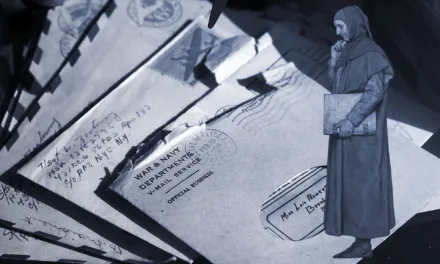
How To Make Money as a Writer

If you want to build a career, there are several ways to make money as a writer. How much you can make and what path you have to take to get there will look different for every author, so it’s good to have a clear plan on which will get you on the right one.
The “money talk” when it comes to writing is often done in hushed tones, with conversations happening around the topic, rather than with any clear direction. One of the reasons is that there is no single, direct route to getting paid, but another is that a culture has sprung up around the very idea of money talk that risks the speaker being branded as “bragging.” It’s made the writing world fertile soil for get rich quick scams and writers severely undervaluing their creative work.
So, let’s sit down with some real talk. I’ve put together the five most common ways that writers can make money, and how they can expect to be paid.
Traditional publishing
Getting a traditional publishing deal is the dream, but even if you’re one of the lucky ones who make it, it’s important to be realistic about how much you can hope to earn. Not every published book becomes a bestseller, and depending on the genre or style of your book, you might not be targeting the right audience to make a lot of money.
Being a published author means your income relies on royalties. In short, for every copy of your book sold, you will make a percentage of that sale.
The average royalty rate from traditionally published books is between 10%-12%, so if we take the average UK RRP of £7.99 for a paperback as the base price, most authors won’t earn more than £0.96 per copy sold. To put that into perspective, to make £25,000 a year as your base salary, your book would have to sell over 26,315 copies annually.
With the marketing and PR support of a publisher behind you, these aren’t impossible numbers, but if you’re writing for a small imprint, an independent publisher, or writing on a niche topic, this is definitely something to consider before publication. You’ll also see a downward trend in sales after the first couple of years unless your work is still actively promoted, so it’s good to remember that a single published book isn’t going to make you money in perpetuity. The more books you have published, the fewer copies of an individual title you’ll need to sell to make money as a writer.
In 2018, The Authors Guild conducted a massive survey of American writers that showed a huge disparity in author earnings. They found that the median income for writers in 2017 was as low as USD $6,080, which did not include the 25% of respondents who had made no income from their work that year. In fact, the top 10% of published writers account for 70% of author earnings.
That doesn’t mean it’s all doom and gloom, however. As a published writer it becomes easier to supplement that income with chances to write for magazines and journals that pay for submissions, have paid speaking engagements, and even monetise your socials. The prestige of being a published author makes it easier to have secondary writing work or writing-adjacent side hustles that can make up the shortfall of your book sales.

Self-publishing
Royalty rates are much higher for self-published authors, making it an enticing prospect for those wishing to make money as a writer. Conversely, the costs of marketing, editing, and growing your audience can severely cut into those profits. That said, it’s a lot easier to put out more books in a shorter space of time than it is with traditional publishing, so you’ll see returns on your money and time investments a lot faster.
Self-published authors can expect to see anywhere between 35%-70% in royalty earnings from their sales. This is a huge difference from what traditional publishers are offering. On KDP (Kindle Direct Publishing), for instance, books with a list price between USD $0.99- $2.98 will earn 35% on each copy sold, and 70% on books priced between USD $2.99 and $9.99.
Most first-time self-published authors will choose the lower price point as it will result in more sales and help grow an audience. A book listed at £0.99 with 35% royalty earnings would have to sell a whopping 71,428 copies annually of a title before they could earn £25,000 a year. Once a self-published writer is more established and can charge a higher list price for their titles, however, their earning potential jumps exponentially.
Taking the average UK RRP of a print book from a traditional publisher of £7.99 as our basis, with 70% royalty earnings an author would only have to sell 4,464 copies of a title to make £25,000 a year. Now split this over multiple titles at varying price points and the potential for earning as a self-published author is definitely one of the better ways to make money as a writer.
There is no trick to overnight success for those who choose to self-publish. To be in the top earners you’ll need to be willing to spend money on book design and editing services to ensure your work is of a high standard. You’ll also need to invest time, and possibly money, into a marketing plan that will mean your first few years of self-publishing will probably run at a loss. But if you weather that storm, then self-publishing can be one of the more reliable and stable ways to earn an income as a writer.

Selling articles and stories
Selling your work on a case by case basis can be an effective way to make money as a writer. Whether you’re a short-storyist or non-fiction article writer, there are always publications looking for work to include in their next release. What magazines and journals charge varies by genre, readership, and general business size. Smaller publications will pay less, and naturally, bigger publications will pay more.
Like traditional publishing, there’s a lot of querying and rejection involved in getting your articles or short stories published, so it’s good to be aware of that going in. The benefit, however, is that the shorter form means you can have a higher level of output and query multiple pieces at once, rather than spending time on a single piece of work that takes years to write.
Magazines and journals are the rare exceptions to the rule of budget = quality. There are lots of small presses that produce great quality work, but simply don’t have the budget or the subscription numbers to justify paying their writers large fees. In these cases, it becomes a collaborative effort. I have written for small publications that paid submissions as little as £5 because I believed in their magazine and wanted to help them grow – when they grew and could pay more, they did. It’s all about shopping around to find what works best for you.
You don’t have to be an established writer or have a proven audience to submit to a magazine or journal. You just have to submit something that’s well-written, engaging, and relevant to the publication you’re submitting it to. Most established publications will pay writers between £150-£250 for a short story or poem, and between £150-£300 for a non-fiction article. That said, bigger publications with a wider readership can pay up to £2000 per story, but they tend to be a lot picker with who they publish, so you may want to get a few more publications under your belt before targeting the big players.

Ghostwriting
Ghostwriting is a risky way to make money as a writer, but once you’re established, it can be quite lucrative. The hardest part when you’re starting out is convincing people of the value of your work, and then it can be difficult to keep a consistent stream of work coming in. If you can do it though, it’s a very profitable avenue for writers beyond traditional publication.
In order to get your start as a ghostwriter, it’s important to have a writing portfolio under your belt. For this reason, it’s good to do some freelance blogging, magazine submissions, or copywriting in advance to make sure you’ve got something to show potential clients. There are firms that offer ghostwriting services that you can seek out who will send you clients, or if you’re confident enough, you can go it alone and leverage your network to see who might be looking for a ghostwriter.
Ghostwriting is a lot more common than most people realise. People outside of the publishing industry often have the mistaken idea that ghostwriting is limited to celebrity memoirs, but it’s a common practice across the entire book world. A lot of well-known novels and non-fiction works are ghostwritten, so the big part any aspiring ghostwriter needs to ask themselves is, “am I willing to lose all writing credit for the sake of a paycheck?”
For ghostwriting a book, you’ll be looking at a minimum of £5000 depending on your experience, and the length and requirements of the project. Even starting out, it’s important not to sell yourself or your skills short, or you set a precedent not only for your earning potential moving forward but for the industry as a whole. The less you charge, the less writing is worth overall, and the harder it is to make money as a writer.
Ghostwriting services are expensive, and the reason behind that is that it is a highly-skilled job and a long-term commitment. A ghostwritten novel can take anywhere from 6-months to 1.5 years to complete, so your fee needs to reflect that. The average ghostwriter earns between £15,000-£35,000 per project, but this can increase as your skill grows and your name spreads. The trick is to make sure you can either juggle multiple projects at once or have several projects lined up for when one finishes.

Blogging
Whether you have your own blog that you monetise, or go the freelance blogging route, this is definitely one of the most consistent and stable ways to make money as a writer. The internet requires a constant output of content for brands and businesses to stay relevant and in the public eye, so there are always opportunities available for online copywriters.
Writing blog articles for brands and businesses is the safest route, but depending on the business you’ll see wide variations in the budgets that each of them has available. Small businesses and startups will have much smaller content budgets than large firms that spend thousands on marketing each month.
Like any freelance job, you won’t find success overnight. You’ll need to start out small and seek out better-paying work as you gain more experience. Beginners rates can be as low as £10 which, unless you have the time to dedicate to an absolutely prolific output, will not pay the bills. Unless it’s a startup that can give you ongoing work and will allow you to negotiate a higher fee as the business grows I would avoid jobs that pay so little as, not only will the quality of their content usually show that budget and therefore devalue your own work in context, but they devalue the business of writing as a whole. It’s a skilled job. You deserve to be paid.
The average beginner’s rate should usually be around the £25 mark, moving up to £50 for professional writers who are happy to work for small businesses, and then anywhere up to £100-£250 per post for seasoned professional writers working for big-budget firms.

Personal blogging is a much riskier proposition. Like self-publishing, it relies on building a captive audience that third-party advertisers can leverage for reach. Like a self-published author, you’ll need to put a lot of time and effort into advertising yourself and your blog. You’ll want to be active and push your content on social media, and even think about paid advertising on various social media platforms to expand your reach.
Most personal bloggers make their money through affiliate marketing and paid guest posting, which means you’ll have to have a proven engagement record to start monetising that. Affiliate marketing is far and away the most common way to monetise your work. You essentially partner with companies to put links to their products in your content and you’ll be paid a small commission for each click-through and/or purchase made from your site. You can also add marketing banners to your blog, but this has become less popular with readers, so tread carefully and make sure you know your readers’ preferences.
As you become more well-known, you’ll be able to charge for guest posts on company websites or on other blogs. Brands may even commission you to write sponsored content for your own blog. At this point, you’ll be making enough money to have a writing career.
When you first start out, your earnings will probably sit around the £20 a month mark, but as you increase your following the average full-time blogger income sits anywhere between £200-£2000 a month. For this to work for you though you’ll need to have found a dedicated niche for your writing and really worked to build an audience and up your engagement. The top bloggers can earn well into three-figure amounts, but those are the rare exceptions and not the rule.
Writing is hard work, making money from it is harder still, but it’s certainly not impossible. There’s no mystery to how you can make money, but it does take a clear vision of what path you want to take to get there, and what part of the process you value most.
Like running any business, to make money as a writer requires you to think of your bottom line and come up with a plan on how you can achieve your goals. If you want to write as a career, take a moment to sit down and draft out a life and business plan – if you work at it, then there’s no reason why you can’t make money from your writing.






























